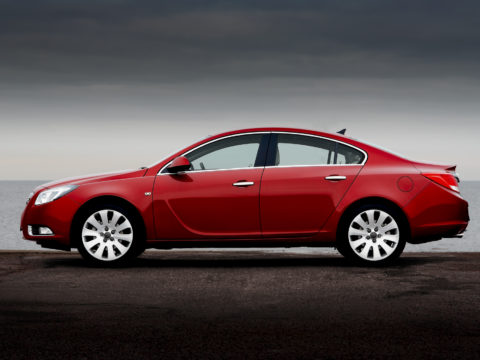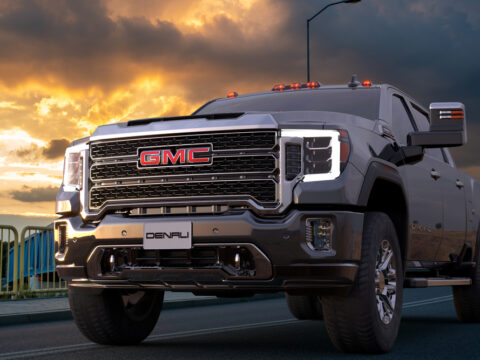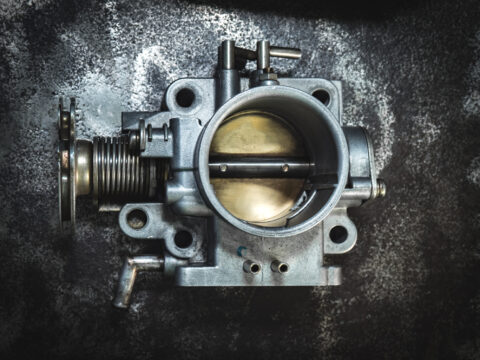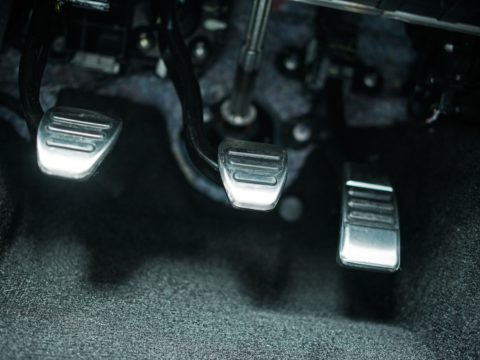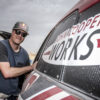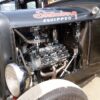There are a lot of parts working in conjunction together for a car to operate. Each one of its parts has to work correctly and in conjunction with each other, or the car malfunctions.

It is dangerous to operate a vehicle when it is not running well. It can even be life-threatening. We will look at the rattling noises we hear when accelerating the car, what causes it, and how to fix it.
Contents
Is Metal Rattling Noise When Accelerating Normal?
It is not normal for rattling to come from any part of your vehicle. It doesn’t matter if the noise comes from under the hood or elsewhere. A rattling component could mean a few things, primarily that something is loose, there isn’t enough lubrication, or the parts have worn down.
When you drive, you should only hear your engine humming quietly. Rattling noises mean it is time to inspect the vehicle for the source of the rattling or go to the repairman.
You can fix some issues on your own, but it is usually safer to go to a mechanic if you aren’t familiar with all the car’s components.
Either way, you should try to solve the issue immediately if you hear a rattling in your vehicle. This sound is a sign that something is wrong somewhere in the car, and it is of utmost importance that you care for your vehicle to ensure the safety of yourself and your passengers.
Why Is My Car Rattling When Accelerating?
When you hear your car making these noises as you accelerate, it is time to find the source of the noise. Your vehicle may be relatively safe to operate for the time being, but it could quickly become life-threatening after some time.
Broken Heat Shield
Your vehicle’s exhaust system has many metal guards throughout the system. These guards protect the rest of your car from the heat it emits. There are two main reasons your car rattles from a broken heat shield.
The first reason is that the heat shield breaks away from the exhaust system. When this happens, the part dangles free at one end and hits other parts of the exhaust system.
The second reason your car may rattle from a broken heat shield is that it has a hole in the part, which happens when the component has moisture and rust damage from weather and exposure to the elements. Once the part rusts, it becomes brittle and easy to break.
Damaged Engine Mounts
Engine mounts prevent your engine from moving around under the hood. The engine mounts consist of rubber and metal. Both components can wear out over time. If your engine mounts are damaged, when you accelerate or come to a stop, the engine will move and come in contact with other parts of the car.
What starts as a small rattle and an easy fix can become challenging to fix and dangerous to your safety if your engine damages other automobile components.
Poor Transmission Maintenance
The key to a working transmission is fluid. So first, it must have transmission fluid, which keeps it lubricated and prevents it from rubbing against other parts.
Without this lubrication, these parts will rub together, and if not maintained, the transmission will make rattling sounds upon acceleration and may become a major issue than adding transmission fluid.
Worn Exhaust Parts
The exhaust system of an automobile has a lot of components. If any of these components get worn out, causing them to break, rust, and corrode, you will hear a rattling sound when you accelerate.
Having a problem with the exhaust negatively impacts the performance of your car. Listed below are some of the parts of your exhaust:
- Muffler
- Clamps and Gaskets
- Flex Pipe
- Manifold
- Catalytic Converter
Defective Valve Train
If your car sounds like glass bottles clinking together when you accelerate, it may be the valve train. These valves take care of the intake and exhaustion. If they get stuck, premature ignition takes place inside the combustion chamber.

How Do I Fix a Rattling Noise When I Accelerate?
As with most problems with malfunctioning parts of any vehicle, it is easy to fix if you address the issue as soon as you hear the noise. But, if you drive the car repeatedly, further damage happens, the solution becomes difficult, and the cost of repair or replacement increases.
Fix a Broken Heat Shield
If the damage isn’t extensive, a broken heat shield is simple to repair. You can get it spot welded in place, and the procedure is usually inexpensive. However, the heat shield will have to be replaced if it is severely damaged.
Fix Damaged Engine Mounts
You cannot repair damaged engine mounts. If your engine mounts wear out, then you need to have them replaced. It is relatively inexpensive but tricky to do yourself. It is better to have a professional lift the car at a shop and remove and replace the engine mounts.
Fix Transmission Issue
When transmission issues first start, it is usually a lubrication issue. The transmission must have enough fluid to prevent parts from rubbing together. Therefore, you must change transmission fluid every 30,000 miles. If it is a fluid issue, check the transmission fluid. If it’s low, add fluid, which should fix your problem.
If your vehicle has gone a long time without transmission fluid, it could lock up your transmission, requiring you to get a new one.
Fix Worn Exhaust Parts
The first thing you need to do is inspect the exhaust and find out where the problem is. Be sure to let the car cool off if you have used it recently to prevent skin burns.
Once you are under the car, inspect the exhaust, and look for holes and worn-down areas with rust and corrosion.
Exhaust tape is perfect for small holes, but if the hole is large, then a piece of aluminum and epoxy will fix it. But if it is badly worn by rust, it is best to replace it.
Fix a Defective Valve Train
The valve train sits on top of the engine of the vehicle. If it is defective, your car may make a rattling sound when you accelerate. In this situation, check your oil.
Making sure the oil is at its proper level and clean is imperative to the car’s health. If the oil is very dark, then the oil needs changing and should solve the problem.
How Much Does It Cost To Fix a Rattling Noise When Accelerating?
The answer to this question depends on the source of the rattling when you accelerate. It can be very cheap if the issue is minor. Conversely, it can be expensive if the cause is extensive, especially if you are replacing parts instead of repairing them.
Is It Safe To Drive My Car When It Makes a Rattling Noise When Accelerating?
Any rattling noises coming from your vehicle are a cause for concern. A small rattle may be ok at the onset, but even the smallest of issues can become dangerous as time goes on. You should find the source of the rattling and get it fixed as soon as it occurs, ensuring that your vehicle is safe for you and your family.

